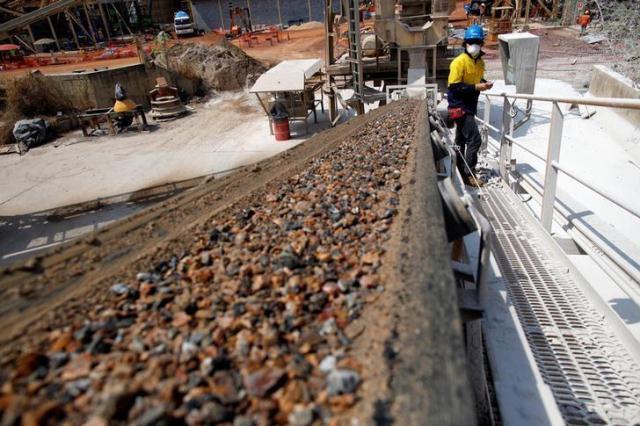Lessons to learn from story of mining entrepreneur
Ali Salman
State-of-the-art private sector-led iron ore project couldn’t be able to take off

ISLAMABAD: This is not only the crushing story of a mining entrepreneur in Pakistan. It is also the untold story of how a state eats into businesses its citizens create.
It has been 13 years since Adnan Ghauri, our mining entrepreneur, has been fighting for his rights in Pakistani court system. He is waiting for the execution of a decree of Rs400 million awarded in his favour when he filed a suit against Pakistan Steel Mills (PSM) in 2007.
The story started with his father, Engineer Majid Ghauri, obtaining a prospective licence for exploration of iron ore in Dilband, Balochistan in 1998, following an indication by the Geological Survey of Pakistan, which encouraged the risk-taking entrepreneur to venture into mining business.
The prospective licence was converted into a lease for 25 years – a lease for 54,000 acres of land.
Back then, a French expert advised that the iron ore available in Balochistan was of significantly better quality than that available in France. It was estimated that only one rock in Dilband area had iron ore reserves of 70 million tons.
The feasibility indicated annual production of 400,000 tons of iron ore from the area. According to estimates, Pakistan has around 1,497 million tons of low to high-quality iron ore available.
After making necessary preparation and investing in research and technical support, the newly formed mining company started extracting iron ore.
It entered into a contract with PSM in July 2004 and set up a crushing plant next to it to facilitate the supply of iron ore.
PSM was, and still is, the only steel mill in the country with blast furnace technology – all others are only re-rolling mills, ie they recycle scrap. PSM entered into a contract to buy 120,000 tons of iron ore from the Dilband project.
PSM, after placing an order, repudiated its contract, and started importing iron ore from Iran, which was three times expensive than the local ore. It forced the mining company to foreclose and sell its properties to repay bank loans.
The company went into court and arbitration and got a decision making the arbitration award rule in its favour, which is yet to be implemented.
The company went out of iron ore mining business eventually, though its directors have continued to operate in different segments, including local assembly of special purpose vehicles, used for drilling water wells and mineral exploration.
While the Dilband project was a private investment, the government had set its eyes on entering the mining business. Not soon after mining operations started in Dilband, Balochistan government started its own mining company.
Many years after this, company officials would complain to the high-ups as to how a private entrepreneur could perform the same operation at a fraction of the cost.
In the case of private sector, the entrepreneur would live in a container, would travel in a used vehicle and would eat simple food.
In the case of a government department, the lunch would be supplied in boxes by a five-star hotel in Quetta, many cars would be bought in advance and a proper residential compound would be built first – before business may commence, or actually regardless of the business.
Various parts of the work were given to private parties on the usual government contract terms. That is how a government would conduct a business.
Many years later, this story was repeated in Punjab, which saw the setting up of a mining company instead of offering proper incentives to the private sector for entering into this business.
The government, instead of becoming a facilitator to the private sector, has become its competitor. The result is that despite having vast reserves of iron ore, Pakistan has not exploited them so far.
A Planning Commission paper cites lack of a business-friendly regulatory framework in the mineral sector as an obstacle to attracting investment. The sad part of the story is that the first state-of-the-art private sector-led project of iron ore was never allowed to take off. It was killed by state institutions.
Like every story, there are lessons here. First, the contract enforcement in Pakistan is unreliable, which discourages risk-taking businesses in particular. Second, government entry into the business is harmful for itself, for its people and for businesses. It not only denies opportunities that an entrepreneur can create, it also denies itself potential revenue that it can earn through taxes, and spend this money to improve institutions.
Third, we need better laws. Outdated policies and regulations, which create more obstacles than facilitation, should be repealed.
As this story suggests, while the government is busy getting rescue packages from the likes of International Monetary Fund and World Bank, it is not paying enough attention to fixing the institutions which matter for businesses and entrepreneurs.
The government may survive fiscally but the party will be over soon while the wealth locked in our people, and in our land, will remain locked.
The writer is the founder and executive director of PRIME Institute, an independent free market think tank based in Islamabad
Published in The Express Tribune, February 22nd, 2021.
